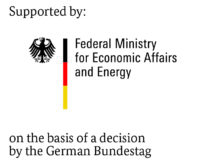Investigation for safe oil heating operation
19 February 2021 – Many owners of new and older oil-fired heating systems would like to heat in a climate-friendly way. They could reduce their CO2 footprint when heating if, in addition to energy-saving measures such as insulation or integration of solar energy, they increasingly used heating oil with reduced greenhouse gas emissions. In a current research project, OWI Science for Fuels gGmbH and the Chair of Analytical Chemistry at the Institute of Chemistry at the University of Rostock are investigating what proportions of new low-greenhouse gas fuels can be safely added to older heating systems.
In the project, the researchers are looking at, for example, fatty acid methyl esters based on different biogenic raw materials, paraffinic fuels, an alcohol (octanol) and a sulfur- and aromatics-free gas-to-liquid fuel, all of which have different physicochemical properties. In particular, the study focuses on the causes and extent of interactions between the increasing variety of alternative fuels and conventional heating oil. The interactions include, for example, possible deposits on fuel-carrying components, such as in the mixture formation unit of oil heating systems, which can occur when using aged fuels after prolonged storage. The chemical-physical causes of this have not yet been fully elucidated.
For the investigation, OWI is further developing a test rig from a previous project that allows experiments on the evaporation of fuels on metallic mat of fibres, so that operation with different power levels and operating states is possible. To better understand the phenomena at the molecular level, the University of Rostock is further developing analytical methods such as fast gas chromatography and an ionization method for mass spectrometry. They will help uncover the differences in coking tendency between fuels and identify the chemical compound groups responsible.
On the one hand, the development of strategies for high operational reliability and component lifetime can consist of an optimization of the chemical composition of the fuels for use in technical equipment by fuel manufacturers. For this purpose, additives can also be specifically developed further or newly, which can prevent possible deposits or dissolve them again. On the other hand, manufacturers of burners or burner components can optimize their components, for example by modifying the materials or the operating strategy.
The IGF project 21317 BG of the research association German Society for Petroleum and Coal Science and Technology e.V. – DGMK, Überseering 40, 22297 Hamburg was funded through the AiF as part of the program for promoting joint industrial research (IGF) by the German Federal Ministry of Economics and Energy based on a German Federal Parliament resolution.

Pressemeldung zum Download






